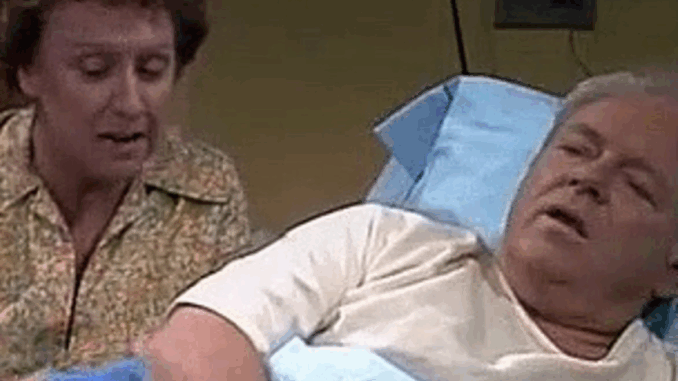
In a series known for tackling social issues with sharp wit and bold dialogue, All in the Family took a more introspective turn with “Archie in the Hospital.” This episode peels back the layers of Archie Bunker—the stubborn, loud-mouthed working man—and reveals the frightened, very human soul underneath.
The Plot: Humor and Humanity in a Hospital Room
After getting into an altercation at work, Archie lands in the hospital with minor injuries. What should be a routine stay quickly becomes a moment of deep self-reflection and unexpected vulnerability. Surrounded by strangers, nurses, and unfamiliar routines, Archie is forced to reckon with something he can’t control: his own mortality.
Throughout the episode, Archie tries to maintain his tough-guy persona, but cracks slowly appear. His fear of weakness and illness brings out a different side of him—one filled with uncertainty, even humility.
Why This Episode Stands Out
“Archie in the Hospital” is more than a filler episode—it’s a character study. Here’s what makes it so memorable:
-
Unmasking the Macho: For a man like Archie, being hospitalized isn’t just about health—it’s about pride. Watching him confront his fears makes him more relatable and, unexpectedly, sympathetic.
-
Subtle Humor: The episode still delivers laughs, mostly through Archie’s exaggerated reactions to nurses and roommates, but the humor is grounded in character, not just punchlines.
-
A Mirror to Real Life: The story taps into a universal truth—everyone, no matter how tough, is vulnerable when it comes to health and the unknown.
Performances That Hit Home
Carroll O’Connor once again proves his depth as an actor. His portrayal of Archie in this episode goes beyond the bluster. In moments of silence and hesitation, he communicates fear, loneliness, and even a glimmer of change. Jean Stapleton, as always, brings warmth and emotional grounding in her brief appearances.
Legacy and Impact
While not as politically charged as other episodes, “Archie in the Hospital” delivers something equally powerful: emotional realism. It reminds audiences that behind every strong personality is a person afraid of losing control, facing pain, and needing connection.
It’s an episode that sticks with you—not for its social commentary, but for its honesty.